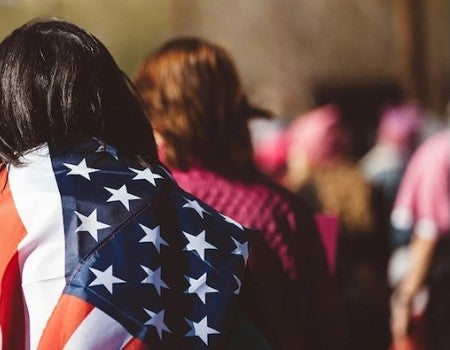

Ruth Simmons joins Barbara Bush Houston Literacy Foundation board
Rice University’s Ruth Simmons, a President’s Distinguished Fellow, has accepted an invitation to join the Barbara Bush Houston Literacy Foundation’s Board of Directors.

About 1 in 7 Houston-area residents say they know someone detained and potentially deported in 2025. There has also been a corresponding shift in atti...
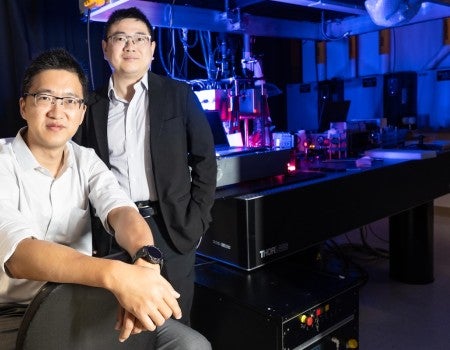
Rice's SynthX Center is leading a new effort to improve how doctors detect and diagnose lymphatic diseases....

A technology designed to read gene activity in the brain from a simple blood test has now cleared a major translational hurdle....
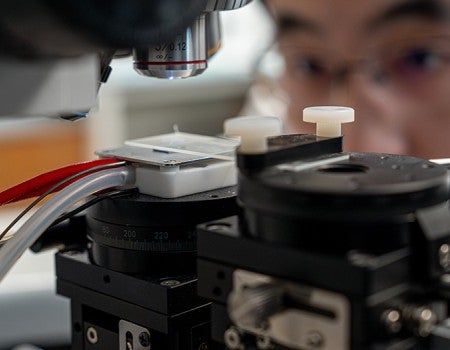
Researchers at Rice have shown that hard-to-spot defects in a widely used two-dimensional insulator can trap electrical charges and locally weaken th...

On Feb. 17, the SSPEED Center welcomed Jed Anderson, founder and CEO of EnviroAI, for a lecture on environmental AI permitting. ...

The Rice women's basketball team was crowned the American Conference regular season champion after a 77-66 win at Temple Wednesday night at The Liacou...
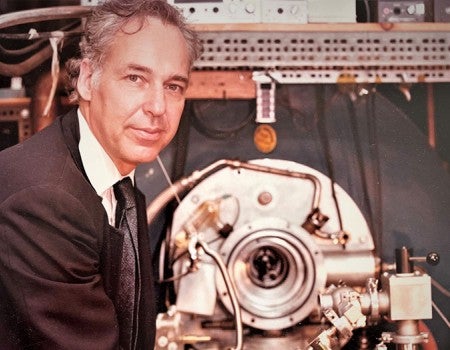
Frank Klaus Tittel, a physicist whose career paralleled the rise of modern laser technology and who helped build Rice’s reputation in laser spectrosc...
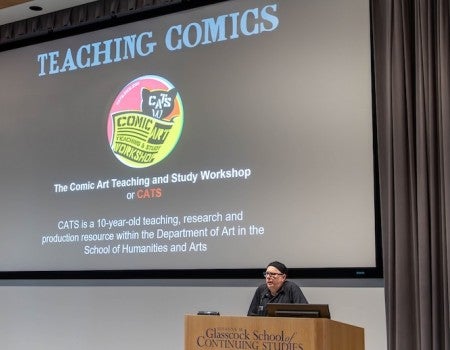
Art teachers, artists and comics enthusiasts gathered at Rice University Feb. 20 for Teaching Comics, a one-day symposium exploring how comics can fun...
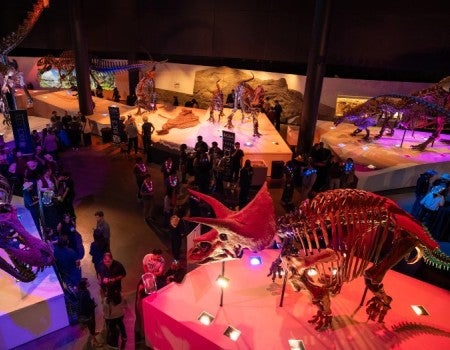
Nearly 700 prospective graduate students, current scholars, faculty and staff gathered at the Houston Museum of Natural Science for Rice University’s ...
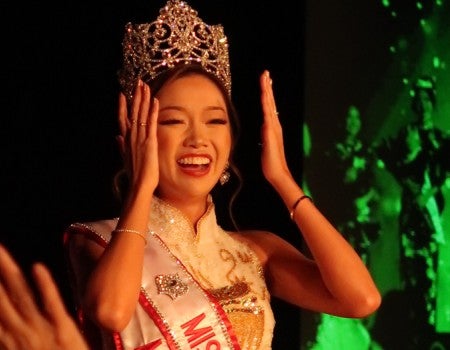
Martono, a second-year master’s student in violin performance, won the title of Miss Chinatown Houston 2025, her first-ever pageant....

Undergraduates at Rice are digging into real, possible wrongful conviction cases this semester, examining evidence to bring renewed attention to indiv...
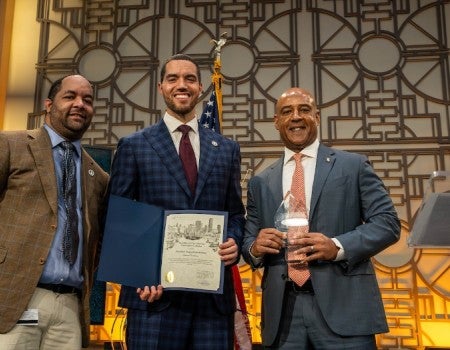
Rice President Reginald DesRoches was honored with a Community Trailblazer Award Feb. 19 by the city of Houston’s controller Chris Hollins during his ...

Ruth Simmons joins Barbara Bush Houston Literacy Foundation board
Rice University’s Ruth Simmons, a President’s Distinguished Fellow, has accepted an invitation to join the Barbara Bush Houston Literacy Foundation’s Board of Directors.
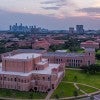
Rice Biotech Launch Pad startup Motif Neurotech closes Series A financing of $18.75 million
Rice University today announced that Motif Neurotech, a neurotechnology developing minimally invasive bioelectronics for mental health formed through the Rice Biotech Launch Pad, closed an oversubscribed Series A financing round of $18.75 million.

Rice international students take young adults with special needs on GREAT tour of Japan
Rice University’s international students, hailing from diverse corners of the globe, recently took on the role of guides and teachers, bringing a taste of Japan to a special group of Houstonians within the walls of Herring Hall.

Rice study unlocks breakthrough for breast cancer bone metastases
Rice University researchers in the lab of chemist Han Xiao have identified a promising new immunological pathway to treat stubborn bone tumors, one of most prevalent forms of metastases in breast cancer patients.

Rice’s Fred Oswald serves as panelist during AI House Davos
Fred Oswald, the Herbert S. Autrey Professor of Psychology at Rice University, was a panelist on "The Impact of U.S. and E.U. Regulation on Business and Society," held Jan. 16 at AI House Davos, a multi-stakeholder platform for responsible AI progress, held during the World Economic Forum 2024 in Davos, Switzerland.
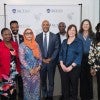
Reducing newborn deaths across Africa enters Phase 2 with $65M
The Newborn Essential Solutions and Technologies (NEST360) international alliance launches Phase 2 of its mission to reduce newborn mortality in sub-Saharan Africa with $65 million in funding from the Bill & Melinda Gates Foundation, the Children’s Investment Fund Foundation, The ELMA Foundation, and generous individual contributions.

Rice Staff Council announces the Rice Staff Excellence Award; nominations due Feb. 9
In recognition of the outstanding contributions of Rice staff members, the Rice University Staff Council has created the Rice Staff Excellence Award.

Rice women’s basketball hits ground running in AAC
Following back-to-back conference road wins last week against East Carolina University and Tulane University, the Rice women’s basketball team is now tied for first place in its first year in the American Athletic Conference.

Engineering professor remembered as ‘brilliant and thoughtful scientist’
Calvin “Herb” Ward, an Air Force veteran whose career at Rice spanned more than half a century, died Dec. 28 at the age of 90.

Friends of Fondren event celebrates Rice authors, artists
Friends of Fondren Library honored Rice University authors, editors, composers and artists of works published in 2023 during its annual celebration event Jan. 17.